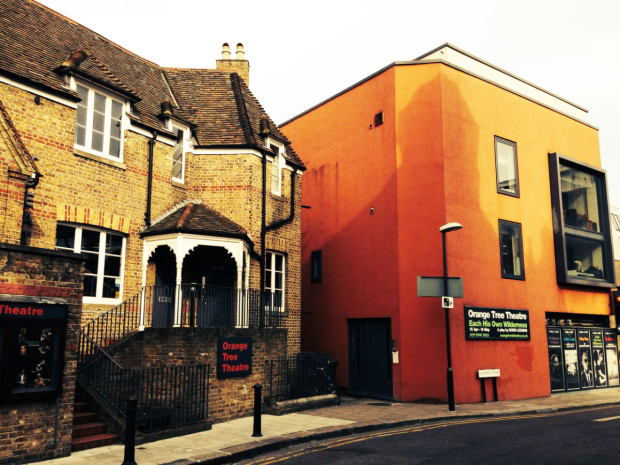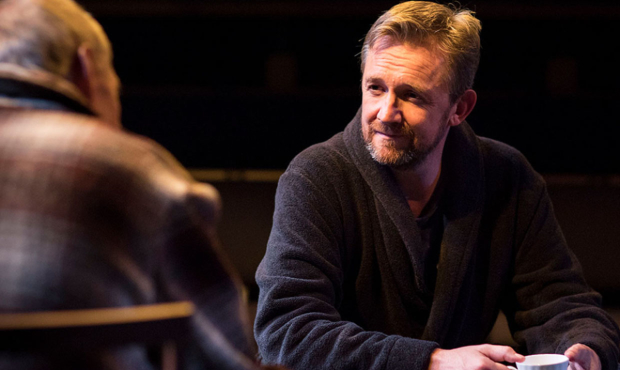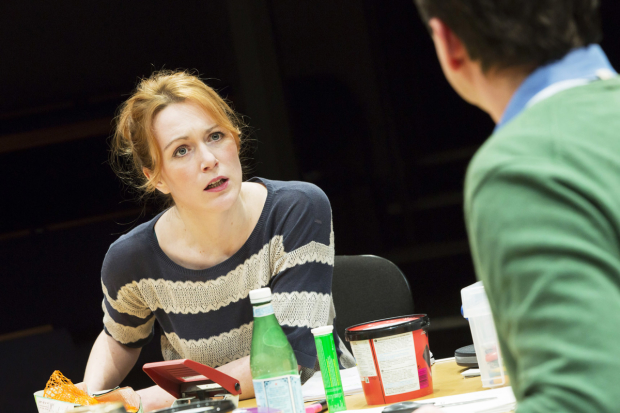Review: Poison (Orange Tree Theatre)
Some of us carry our old loves round with us. Others cut ties and never look back. There’s no right answer, no one way to move on, but, as Dutch playwright Lot Vekemans makes clear in this clipped, abstract two-hander, the past has a way of making itself present. Whether we tend to old feelings or bury them deep, they all resurface at some stage or other.
A man and a woman meet in a waiting room. Somehow, long before the play spells it out, you know all about them. From their mix of familiarity and wariness, the distance and warmth between them, they could only be exes. It’s there in the fact that they don’t say hello – no need. Beneath their evident fondness, they share some unspoken sadness that, combined with carpet tiles and cushioned benches that scream place-of-mourning, suggests straight away that they once lost a child. "You haven’t changed a bit," he says as she smiles. That’s not the half of it.
Vekemans brings them back together to arrange the exhumation of their young son, Jacob, after a chemical contamination at the cemetery. Meeting for the first time in ten years, it brings a lot back to the surface – love as well as grief, heartache and old history.
Zubin Varla and Claire Price negotiate the encounter beautifully, as if both bound inextricably together by what they’ve been through and yet wary of getting too close to one another. They’ve dealt with it differently. After walking out on New Year’s Eve, he relocated to Normandy and remarried – physically moving on – while she stayed put, tending to their son’s grave meticulously. The inequity of that slowly becomes clear. What was, for him, a new chapter – he drove away, stopped for the night then continued – was an ending for her; a door that clicked shut leaving unanswered questions and absence.
In dramatising their reunion, Vekemans offers a richly philosophical encounter – one that wraps love up in hurt like a vine suffocating a tree. Their coming together is, in a way, a fresh parting and, from the moment they meet, both know, deep down, that they’ll have to move on again. It makes for a distinctive moment – a break from the norm or a temporary space to relive the past. There’s a tender simplicity to their sharing red wine and cheese that gives room to something neither fully understands. Our actions, as Vekemans makes clear, don’t always make sense, even to ourselves. Emotions often override reason.
Paradoxically, they seem somewhat lacking here. For all the bittersweet melancholy of Paul Miller’s production, something – text, translation or tone – means it plays out like a metronome; every line spoken on an even keel, every move measured. It adds a layer of artifice, so that Vekemans' writing only ever feels like writing, and it stops any possibility of really caring for these people. Rather than an embodiment of two grieving people, ex-partners dealing with complex emotions, Poison becomes a study in grief or a thesis on heartache. It hits one idea with one note and, while the blues of Simon Daw’s simple design imply two people all at sea, becalmed by grief and lost love, the stasis of the situation is ultimately stifling. Like a forlorn ex, it simply refuses to move on.
Poison runs at the Orange Tree until 2 December.













